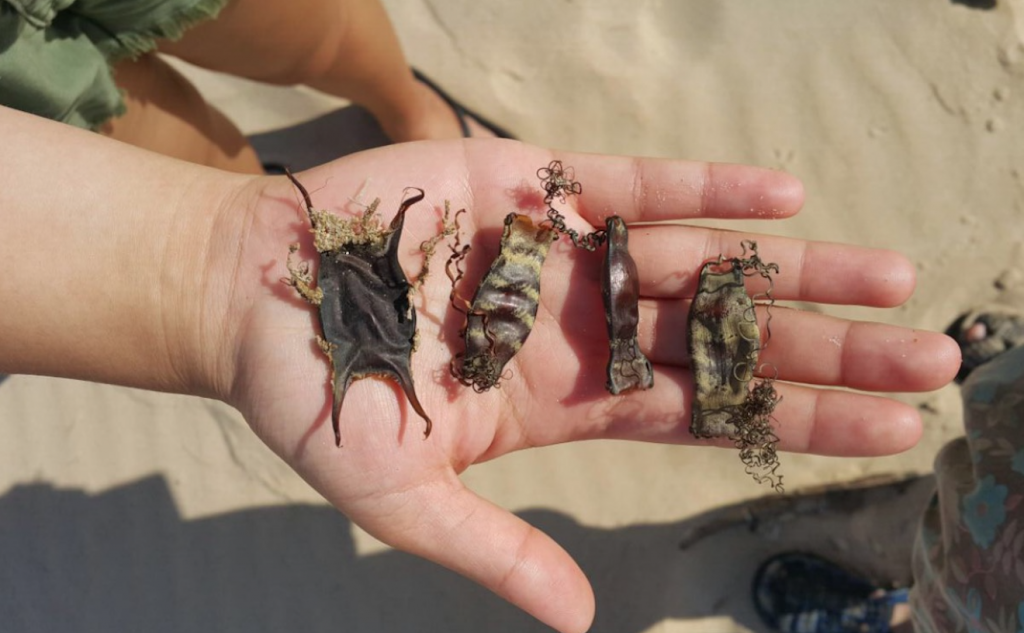Shining light on the advocacy and sustainability work of young environmental leaders working to make their communities safer and cleaner. As part of our commitment to youth engagement and equity, we are holding an ongoing series of interviews with individuals and sharing their stories to spread awareness.

Miah Crossen, 24, received her Bachelor of Arts in Biology from Rutgers University, where she became interested in the intersection between public health and environmental justice. Crossen currently works as a medical assistant at a surgical center specializing in pain management.
In the environmental sphere, Crossen’s passion lies in biological research. She received an ecological science internship with the ORCA Foundation, an organization in South Africa focused on marine conservation. There, she conducted research on great white sharks, pyjama sharks, and leopard cat sharks in Plettenberg Bay. By collecting disregarded egg pods along the shoreline, she estimated their patterns of migration and reproduction. She also assisted in the restoration of hippopotamus habitats which had been damaged following severe droughts and fires. Crossen and her cohort planted native species in protected areas to restore biodiversity and ensure their long-term survival. Subsequently, two hippos that had left their original habitat were introduced to the area. “Climate change directly affects wildlife habitats. This is detrimental to their survival,” Crossen said. “Animals and plants can’t defend their own ecology, so it is up to us.”

Crossen’s desire to fight for climate justice is derived from its confluence with public health. As part of her graduate study prerequisites, she has shadowed medical professionals across New York and New Jersey, treating diverse populations of patients. Crossen underscored the role of primary care services as an entry point into the health system, which is particularly important for rural residents and disadvantaged communities, who face higher barriers to access. “Advantages of primary care include preventative services and early disease detection, leading to lower rates of cancer, heart disease, and all-cause mortality rates,” she explained.
To illustrate her point, New York uses zip codes as part of their data dashboard on asthma because the condition strongly correlates to location. Crossen hopes that more environmental advocates will join the medical field to bring a unique and equitable lens to treatment. “Pollution is a leading risk factor for chronic health diseases and premature death worldwide,” Crossen explained. “Health status is a result of genetics and environment, so preventable illnesses need to be confronted at the root, which includes cleaning our air.”
Crossen’s principal climate priority is ensuring that everyone has consistent access to clean water and air. “The consequences of inaction are enormous. Environmental degradation threatens our health,” she said. She encourages more stringent enforcement of the Clean Air Act, especially in the transportation sector, which contributed to nearly 30% of greenhouse gas emissions in New York State in 2019. Widely deploying clean energy will allow the Northeast to reap the benefits of renewable resources, and she is proud to see New York, New Jersey, and Connecticut make significant strides toward electrifying their fleets.
To those seeking opportunities in climate advocacy, Crossen encourages networking with other young professionals. Crossen joined Alpha Omega Epsilon, the STEM sorority at Rutgers University, where she met peers who provided a community for environmental activism. “The empowerment of women scientists is essential to a representative and meaningful presence in the world of science and ecology. We are role models for the future generation of activists. Science is so much more than lab coats and technology.”
Crossen hopes to see more youth advocates, especially those interested in healthcare, get involved in the climate movement. “As a society, we should promote natural sciences and ecology as valuable and attractive career opportunities,” Crossen said. She is currently working as a medical assistant and applying to graduate programs to become a Physician’s Assistant, where she looks forward to treating patients suffering adverse health conditions in environmentally distressed communities.
